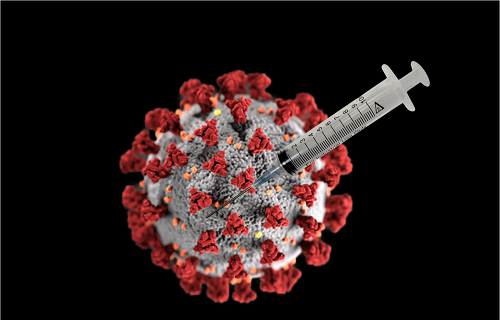N.B. Nair
New Delhi (ISJ): As India is heading for another wave of COVID-19, a new variant has been found in several states, described by the federal government as “Variant of Concern”.
The Delta Plus variant with increased transmissibility, stronger binding to receptors of lung cells and potential reduction in monoclonal antibody response were found in some districts of Kerala, Madhya Pradesh and Maharashtra, according to a statement by the federal Health & Family Welfare Ministry.
Dr. Gagandeep Kaur, a leading Microbiologist and Virologist warned that as long as the virus multiplies at a high level, variants are likely to continue to emerge.
“We will have to wait and see the consequences of these mutations on the performance of vaccines,” Dr. Kang told Indian Science journal. “We are dealing with a new virus that is increasing in its ability to infect people, so we really need to ensure that we can protect people and decrease transmission by increasing immunity.”
The virologist, who was in the teaching faculty of Christian Medical College, Vellore in Tamil Nadu and Executive Director of the Translational Health Science and Technology Institute, Faridabad, an autonomous institute of the Department of Biotechnology, Ministry of Science and Technology, warned, there was some indication that the Delta variant progresses to severe disease faster than other viral variants.
“We will need more information for confirmation of the severity. I think experts who warn that the third wave is inevitable or likely to be more severe are speculating, because we have nothing to base such a prediction at this time,” she advised.
The federal health ministry has also made sweeping changes in the treatment protocol of COVID-19 patients and removed usage of drugs such as Ivermectin, Azithromycin, Doxycycline, Zinc, Favipiravir and plasma therapy. It has asked physicians to exercise extreme caution while prescribing Remdesivir – a vaccine that was extremely in short supply during the second wave, which took more than 53 percent of the total mortality in India since the onset of the global pandemic in early 2020.
“Irrational treatment is unfortunately all too frequent in India, whether that is the overuse of antibiotics for simple viral infections or the unnecessary vitamin supplements. For COVID- 19, we had inappropriate recommendations for both profile access and treatment that were widely adopted across the country,” commented Dr. Gagandeep Kaur.
The medical scientist said, other than one clinical trial on convalescent plasma with about 500 subjects, India have had minimal contributions to the evaluation of appropriate therapies and the approval of drugs based on very limited clinical data, despite the fact the number of cases in the country was huge.
“There still continues to be a backlash against those recommending evidence based medicine, with proponents of many drugs continuing to use them based on a belief that they cannot do harm. This is not true and is unethical, particularly for those families where expensive drugs are prescribed with uncertain probability of benefit,” rued Dr. Kang.
Dr. Kang had taken a stand against the vaccines, until the two producers in India publish its efficacy data.
“The interim efficacy data has been presented by Bharat Biotech and the results look good. I hope that they will publish their data soon and address all the questions that are being raised. For the scientific community, independent review of the data is essential and that should happen soon,” she commented.
She however, was in favour of vaccination, as the crisis was not over and would not be over as a public health emergency until most of the world was infected or vaccinated. “We need to continue to be watchful at this time, as we are some distance away from any level of normalcy.”
Hyderabad-based Bharat Biotech has indigenously developed COVAXIN in collaboration with Indian Council of Medical Research with a novel vaccine adjuvant developed in the United States. On the other hand, Pune-based Serum Institute is manufacturing COVISHIELD, developed by Oxford-AstraZeneca.
COVAXIN comprises a disabled form of SARS-CoV-2 that cannot replicate but still stimulates the immune system to make antibodies against the virus. Results of its Phase 2 trial indicate it was safe and well tolerated. Safety data from a Phase 3 trial is, however, expected later this year.
Image: Representational


